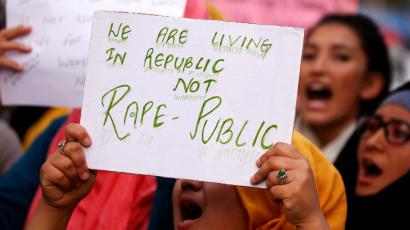New York: The MeToo movement that took the world by storm has led to a 14 per cent rise in reporting of sexual crimes during its first three months across the Organisation for Economic Co-operation and Development (OECD) countries.
The MeToo movement started October 15, 2017 after sexual misconduct allegations against former Hollywood producer Harvey Weinstein became public following a tweet by actress Alyssa Milano who encouraged people who had been sexually harassed or assaulted to write “Me too” on social media.
The MeToo movement was exceptionally effective in rapidly increasing awareness around sexual misconduct in many countries including India.
However, despite the increase in crimes reported, the movement did not increase the number of sexual crimes cleared by the police, said the study published on SSRN, formerly known as the Social Science Research Network.
For the study, Roee Levy and Martin Mattsson from Yale University in the US constructed a new data set of sexual and non-sexual crimes in 24 OECD countries, covering 81 per cent of the OECD population.
“Our results suggest that social movements can rapidly change high stakes personal decisions,” the study said. The researchers estimated that in the first three months of the movement, 11,598 additional sexual crimes were reported in the 13 OECD countries with “strong” MeToo movements.
“This study showed that the MeToo movement had a substantial, persistent effect on the propensity to report sexual crimes. This result is consistent across multiple samples and is robust across multiple estimation techniques,” the study concluded.
The MeToo movement focused on female victims, and often on cases that occurred several months or years before they were discussed in the media. The researchers said that focusing on the US allowed them to understand better who was affected by the movement.
“The effect is strong and statistically significant for both sexual harassment and sexual assault,” said the study.
“Furthermore, we do not find evidence that the movement disproportionately affected neighbourhoods with higher incomes or more education. Overall, we can reject the argument that the MeToo movement had an effect mostly among whites or those with high socioeconomic status,” it added.
The findings suggest that social movements can have large, long-lasting effects on social norms and, as a result, individuals make meaningful changes in their personal decisions. The action individuals take is costly and the effect occurs almost immediately. This suggests that awareness-raising campaigns can be effective in changing personal behaviour.






































